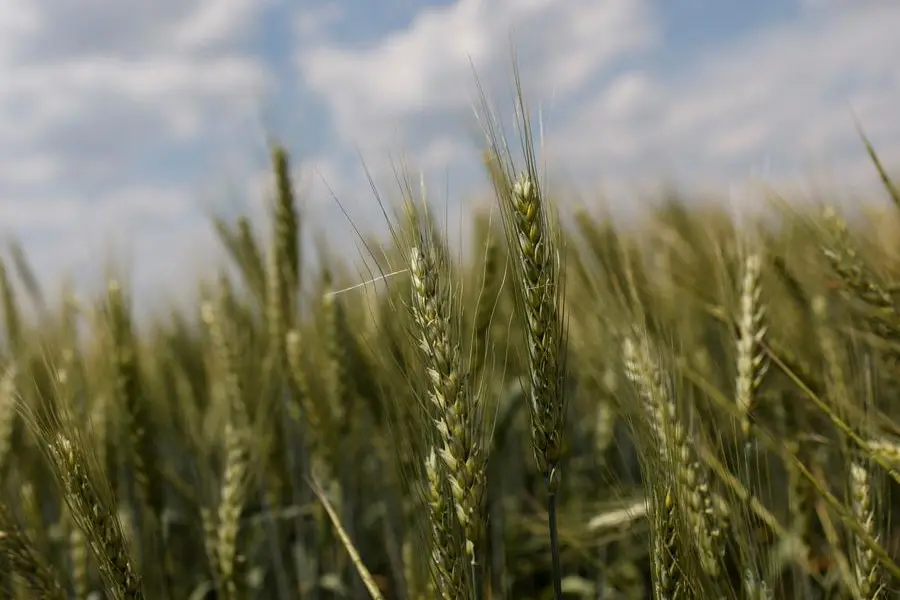PHOTO
PARIS/SINGAPORE - Chicago and Paris wheat futures rose on Monday as a hot spell forecast in western Europe and doubts over talks to open a shipping corridor for Ukrainian grain kept attention on supply risks.
Soybeans eased for a second session to move away from last week's near-record peak, while corn was little changed. A warm, dry spell expected in the week ahead in the U.S. Midwest was creating some early worry about corn and soybean growing conditions.
Gains in grain markets were curbed by a stronger dollar and weakness in crude oil as well as share prices as investors fretted over inflation pressures.
The most-active wheat contract on the Chicago Board of Trade (CBOT) was up 0.7% at $10.78 a bushel. September wheat on Euronext was up 1.2% at 396.25 euros ($414.64) a tonne.
Wheat prices had fallen in the past month as supply fears were tempered by diplomatic discussions to open a Black Sea shipping lane for Ukrainian grain blocked by Russia's invasion and rain relief for U.S. and European crops.
However, an agreement for a grain shipping corridor appeared uncertain as fighting rages in eastern Ukraine, while hot weather has revived doubts about the European Union harvest.
"The situation in Ukraine remains the focus of concern, to which we must now add the climatic situation in Western Europe, with a severe heat wave expected during the week, raising fears of scalding," consultancy Agritel said.
As Spain already entered its most severe pre-summer heatwave in at least 20 years, sweltering conditions are set to spread to parts of France and Italy this week.
The heat could hurt crops that were recovering from spring drought, although the impact will depend on temperature peaks and their duration.
CBOT corn inched up 0.03% to $7.73-1/2 a bushel, while soybeans lost 1.1% to $17.26 a bushel. Soybeans had rallied last week to $17.84, just shy of an all-time peak of $17.89 set 10 years ago.
U.S. soybean stocks will be smaller than previously forecast, as export demand remains strong even with recently harvested supplies from Brazil and Argentina available, the U.S. Department of Agriculture (USDA) said on Friday in revisions broadly anticipated by the market.
(Reporting by Gus Trompiz in Paris and Naveen Thukral in Singapore; Editing by Rashmi Aich, Subhranshu Sahu and Amy Caren Daniel)




















